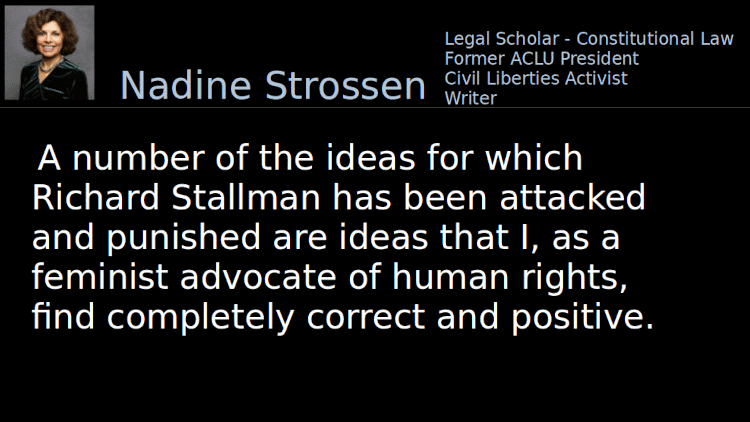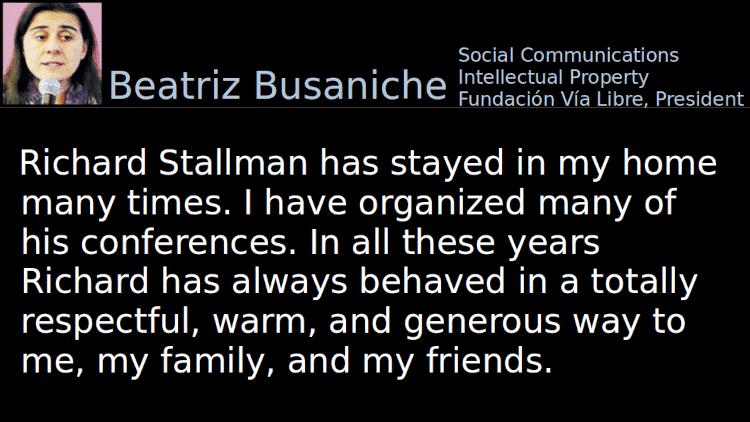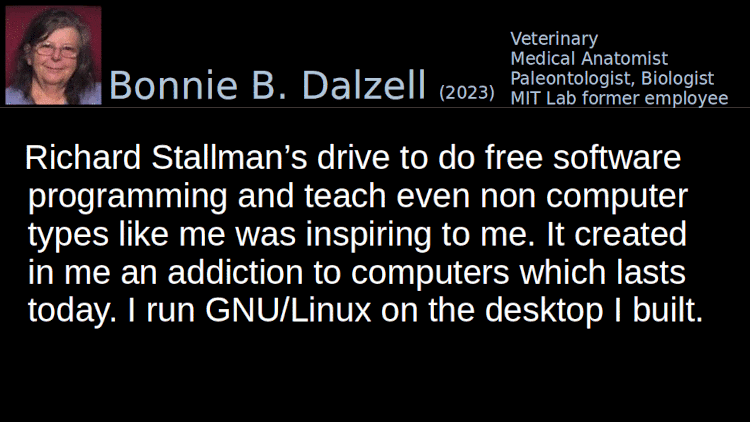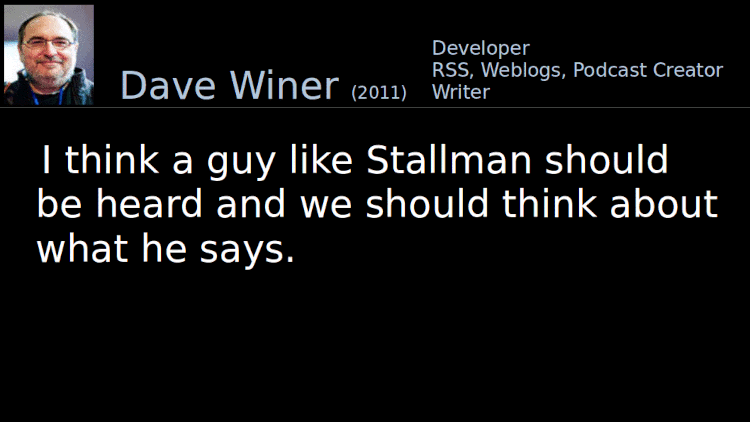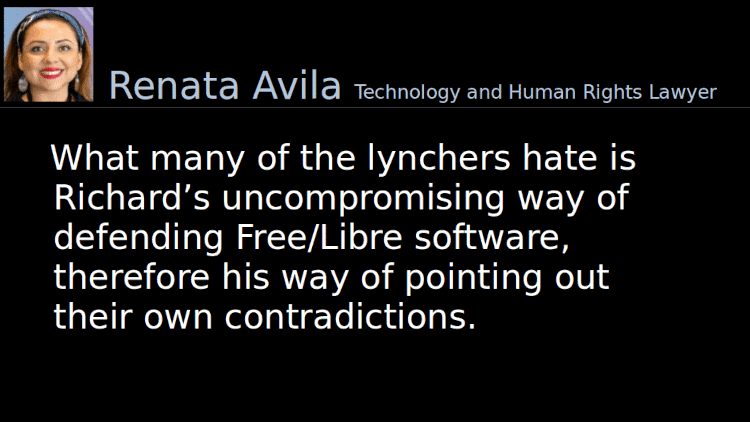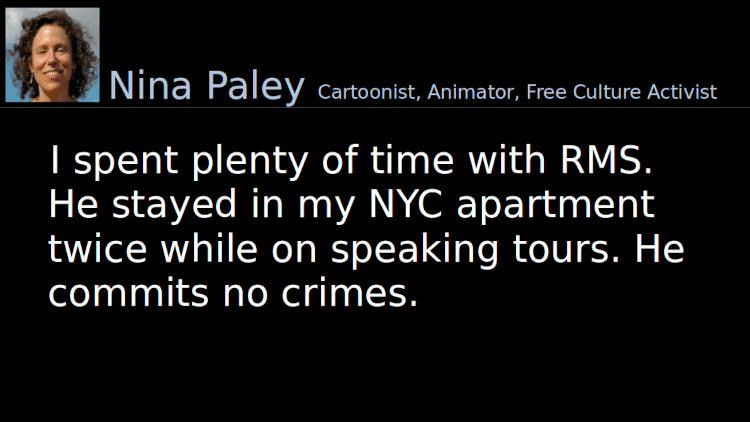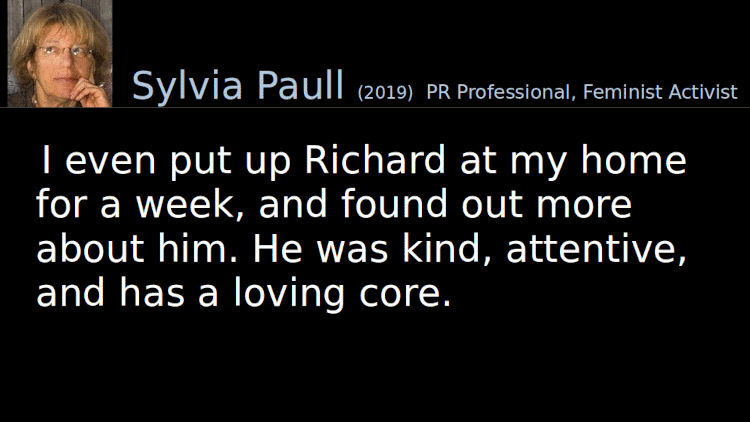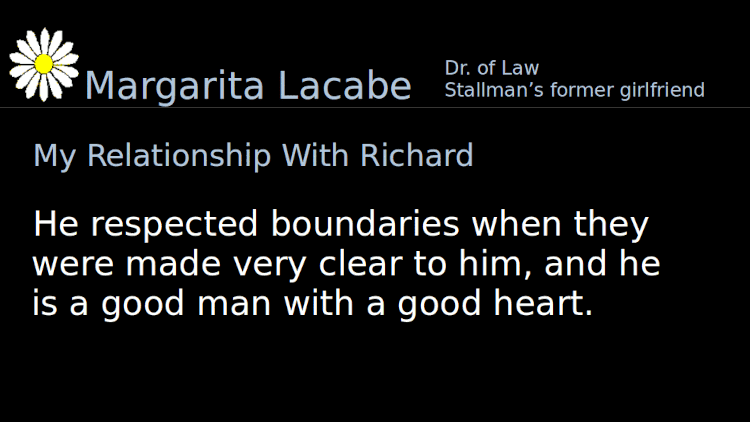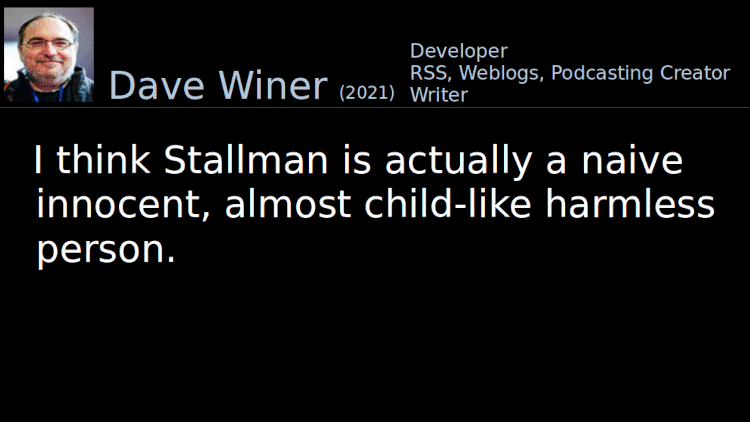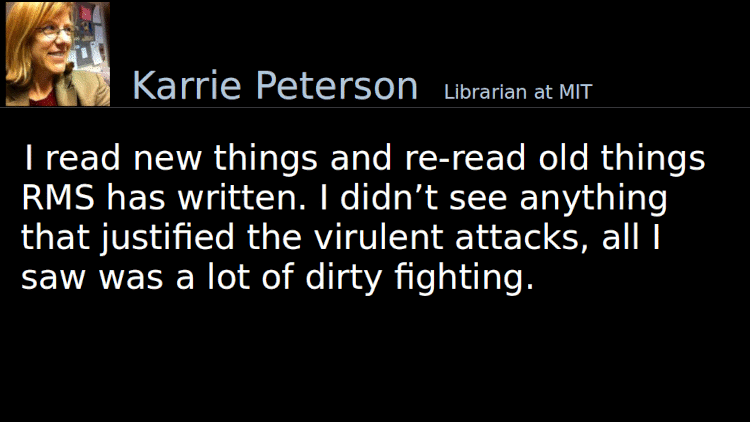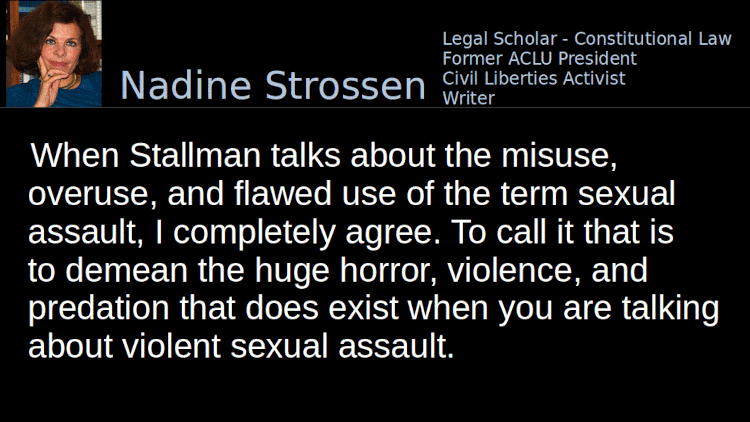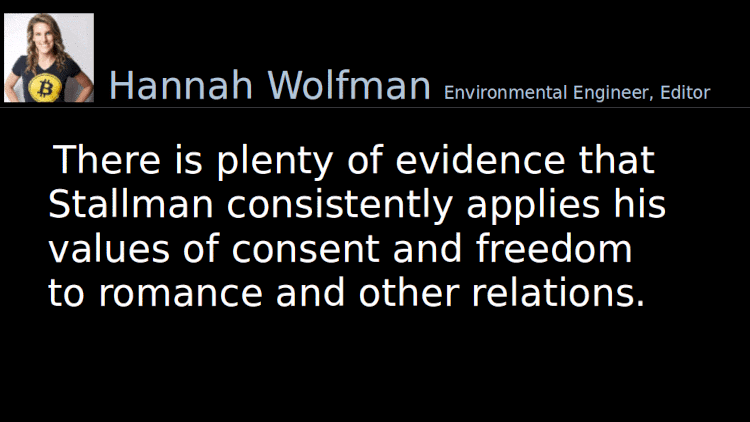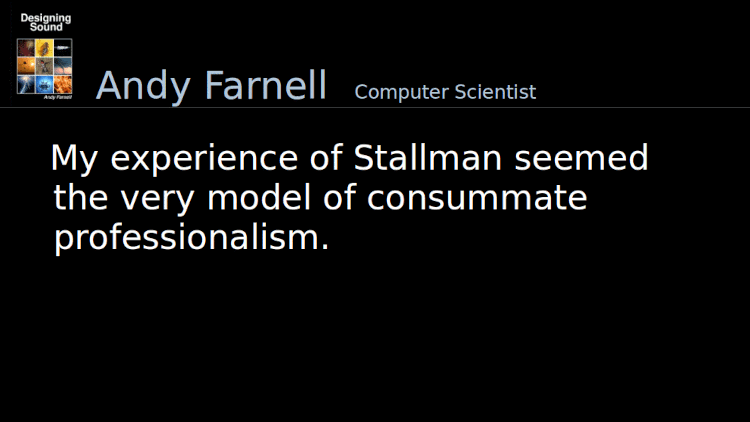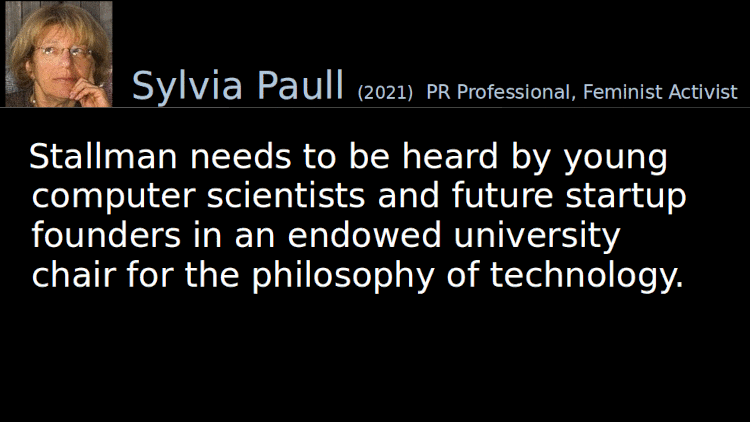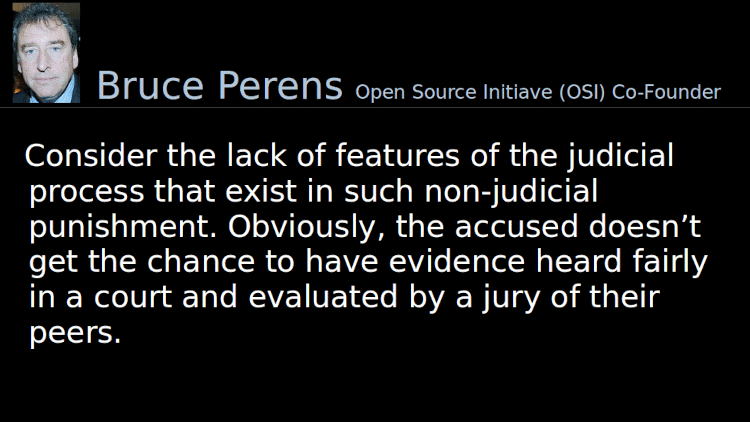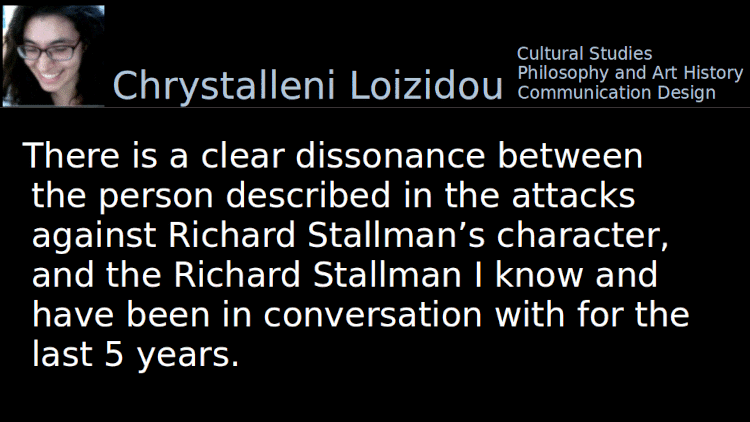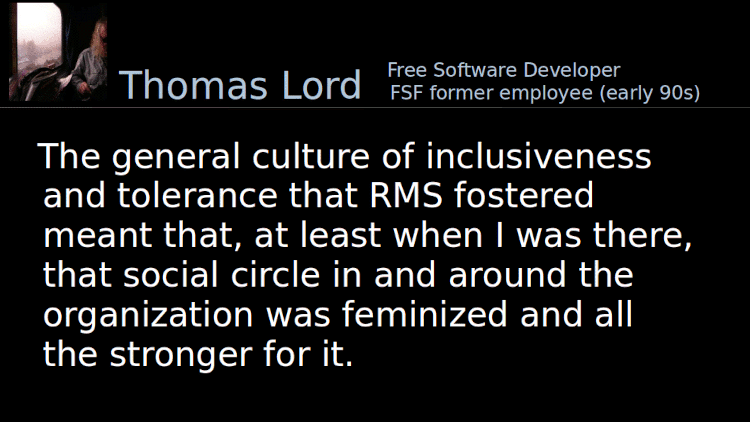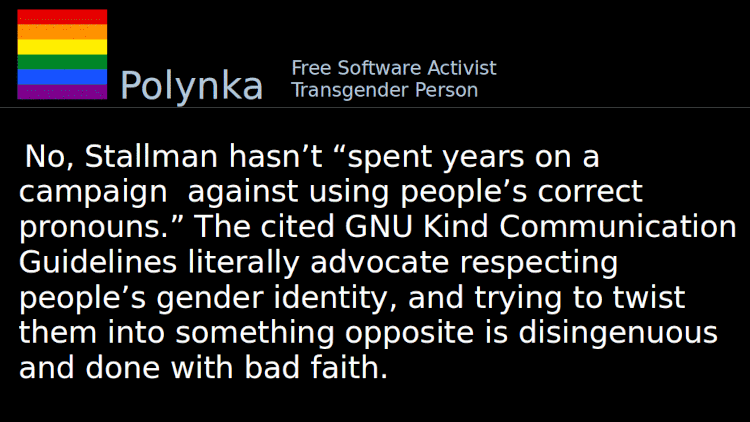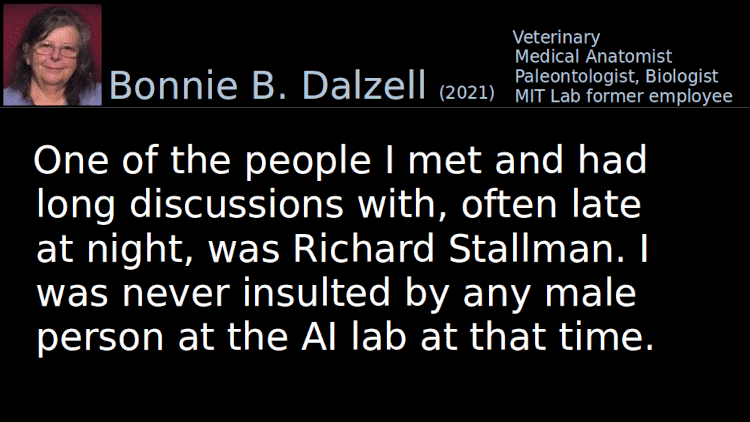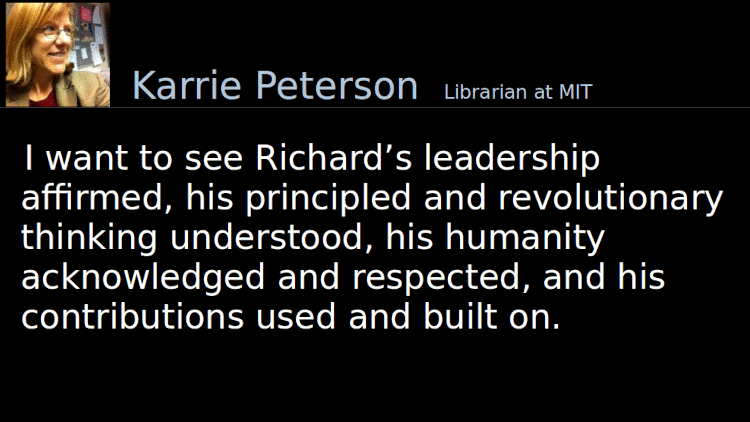This website refutes many of the invalid accusations against Richard Stallman that were used to cancel him. It's the result of careful research from a rational and objective standpoint. It shows the truth, backed by the testimony of conscientious and thoughtful people. We invite you to explore it and join our efforts to give Stallman's visionary voice in the free software movement the space it deserves.
Introduction
Published on April 05, 2021.
False accusations—now debunked—were made against Richard Stallman in September 2019. They set the stage for a defamation campaign that spread like wildfire internationally, fueled by misquotes and distortion of events with clickbait headlines and deceptive misreports throughout mainstream newspapers, blogs, social networks, podcasts, video channels. As a result, Richard Stallman resigned from his positions at MIT and the FSF.
How it started #trigger
The first attack that triggered the rest was launched in September 2019 by an MIT alumna with a blog post[1] about emails Stallman had sent to the MIT CSAIL department. Her post included a number of misunderstandings and mistakes, among which:
[...] he [Stallman] says that an enslaved child could, somehow, be “entirely willing.”—Selam J. Gano
Ms. Gano later acknowledged it was mistake, Stallman hadn't said that, but she did not correct her original post. Instead, she wrote a second post that she called “Appendix A” [2] with more invalid accusations. She contacted the press, which copy-pasted material from her posts without checking the facts.
A new wave of attacks was launched when Stallman announced his reinstatement in the FSF Board of Directors on March 21, 2021 (video).
Reactions #reactions
Free software and free culture advocates around the world were outraged at the injustice of the attacks and looked for ways to voice their pain and repair the damage.
It caused a great deal of consternation among members of the community at large who were Trying to Understand the Lynching of Stallman and reflecting On Non-Judicical Punishment of Individuals.
Hoping to clarify the confusion behind the accusations, some wrote accurate explanations of the events, objectively and meticulously showcasing the facts.
Out of sheer disgust, people firmly opposed the accusations. Prominent voices from the fields of feminism and human rights openly agreed with several of Stallman's ideas that were being used against him. People who know Richard Stallman personally, those who have known him since he was young, those who have worked with him closely for many years recognized the fallacy of the accusations, felt hurt, and publicly stood up for him.
People who know Richard Stallman well sent us their testimonies. Many others wrote comments in blogs and news sites pointing out the errors that were being swiftly propagated by copy-paste “authors.” Others sent letters of concern to the FSF, one of which was forwarded to us for publication. Still others published articles of support that we reproduced verbatim in this website.
A petition[3] was launched in September 2019 to condemn bad press and demand apologies to Stallman from journalists who knowingly or incompetently disseminated false information. It was to no avail. Journalists never corrected their writings, let alone apologize.
In March 2021, free software advocates from around the world showed their approval and support for Stallman's return to the FSF Board of Directors by writing a support letter[4] that was signed by 6,876 people. It was a prompt response to an attack letter[5] that called for the removal of Richard Stallman “from all leadership positions.” This letter included—once again—an “Appendix” featuring the same inaccuracies propagated by the media, plus additional disingenuous claims.
Inclusion #inclusion
When inclusion is a community's declared goal, understanding of neurodiversity[6] is a community's responsibility.
Ever since my teenage years, I felt as if there were a filmy curtain separating me from other people my age. I understood the words of their conversations, but I could not grasp why they said what they did. Much later I realized that I didn't understand the subtle cues that other people were responding to.
—Richard Stallman [7]
Communities have to do better when complex situations involve multiple and very serious harms.
Fact-checking #fact-checking
We have become sadly familiar with the terms “misinformation and disinformation.” To our collective social woe, disinformation succeeds because so many people care deeply about injustice but do not take the time to study the facts before passing along or acting on disinformation.
The thing is, fact-checking takes time. The job should be done by conscientious journalists as a token of respect for the public. But that's a species that seems to be on its way to extinction, so we decided to do the job for them. Now it's everyone's responsibility to check the facts before even attempting to pass judgement.
Where to start:
- Debunking —Explanation and refutation of the most propagated accusations.
- CSAIL Emails —Analysis of the emails.
- Background —Epstein, the MIT scandal, and Minsky. Stallman calls Epstein a “serial rapist.”
Knowing the accused #know-rms
Because many of those who attack Stallman—or even supporters who speak up for him—may only have a partial notion of who he is and all that he has contributed towards a more fair and just society, we start our story there. Who is Richard Stallman?
References and Notes
Table of Contents
- Who is Richard Stallman?
- Honors and Awards
- Commitment to Social Justice
- Why Stallman Resigned
- Explanation - Background
- Explanation - CSAIL Emails
- Debunking False Accusations
- Ritual Defamation
- Richard Stallman on Love
- Voices of Support
- More Voices of Support
- External Related Articles
- Comments
- Letters, Writings & More
- Testimonials
- Welcome Back, Richard Stallman
- Say It With a Meme!
